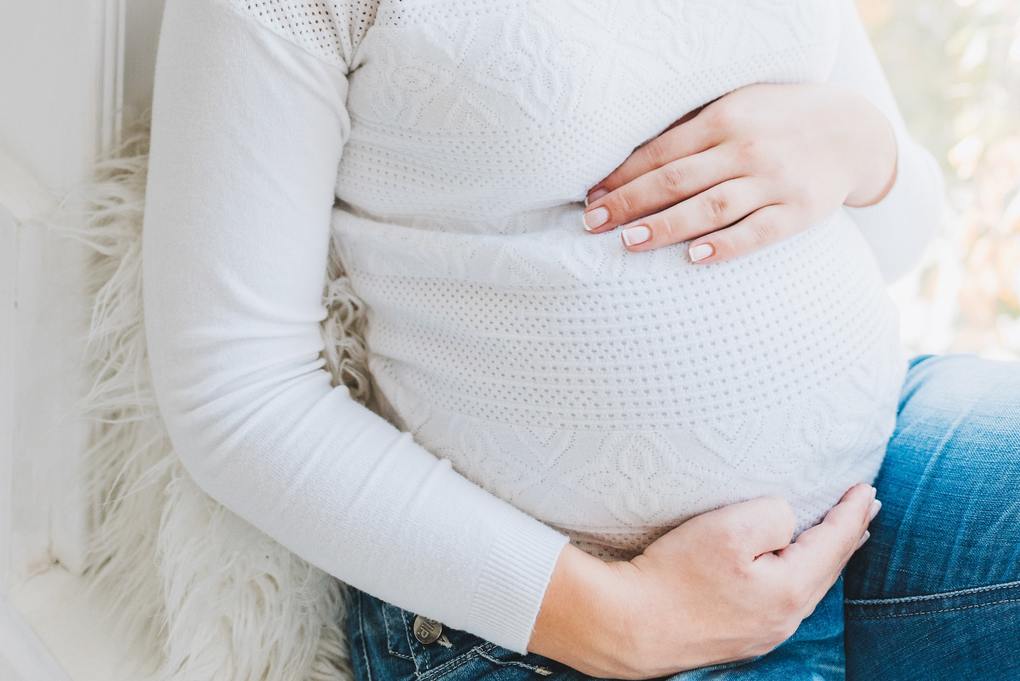COVID During Pregnancy: Does It Harm Your Baby?

Pregnancy is one of the most exciting and overwhelming moments in a woman’s life. And getting COVID-19 during pregnancy can be the worst nightmare for moms-to be in 2020.
This is the time when staying healthy is crucial, so if you feel any pain or other strange symptom, let your doctor know as soon as possible. But what does ‘strange symptom’ mean?
Always watch out for fever
Developing a fever is always a sign that your body is trying to battle an enemy. If you are pregnant and develop a fever, you should always talk to your doctor immediately (pandemic or not!).
Some reasons for fever during pregnancy include:
- Varicella-zoster
- Zika virus
- Rubella
- Herpes
- HIV
COVID during pregnancy: main symptoms
The new coronavirus SARS-CoV-2 leads to a respiratory disease called COVID-19. Symptoms may appear anytime between 2-14 days after exposure.
The main signs (regardless if you’re pregnant or not) are:
- Fever
- Cough
- Shortness of breath
- Fatigue
Some patients may also experience:
- Loss of smell or taste
- Sore throat
- Muscle aches and pains
ATTENTION! If you experience any of the symptoms listed above and you are pregnant, please contact your doctor as soon as possible.
Are pregnant women more likely to get COVID-19?
The coronavirus outbreak started in November 2019, so specialists are still gathering data to see how the virus works on pregnant or breastfeeding patients.
However, the Centers for Disease Control and Prevention (CDC) says that pregnant women are more susceptible to any kind of respiratory infection (for example, the flu). Why?
During pregnancy, the immune system is changing to protect both the baby and the mother; some parts of your immunity are stronger, while others are suppressed. This new balance helps your body keep the baby safe from infections without compromising your physical health.
A study published by Ultrasound in Obstetrics & Gynecology in March 2020 agrees that, so far, there is no evidence that women are more prone to getting COVID during pregnancy by other people. Furthermore, the same study states that even if a pregnant woman is tested positive, she does not have a higher risk for complications than others.
Can the virus pass to your baby?
Note that the only information we have here is from women who have given birth after being tested for COVID-19. With that in mind, there’s no evidence that a mother passes the new coronavirus to her baby.
A very small Chinese study examined nine pregnant women infected with the new COVID during pregnancy. After taking samples from amniotic fluid and cord blood, researchers found no trace of the new coronavirus. Furthermore, all newborns tested negative right after birth too.
However, another study showed that three babies born to women infected with COVID during pregnancy tested positive, while the other 30 newborns from the same group were negative. Researchers still can’t say whether the newborns who tested positive got the virus while in utero or post-delivery.
What you can do
If all the information given above makes you anxious, I hear you. We’re living in a time of uncertainty about everything and the most uncertain of all is our future. Honestly, the best thing you can do for you and your baby is to stay at home and follow social distancing rules.
That might be a good thing too. Now you have plenty of time to rest, watch your favorite TV shows, enjoy online shopping and whatever else makes you happy. Here I also offer 3 ways to smile more during the 2020 pandemic that might help.
